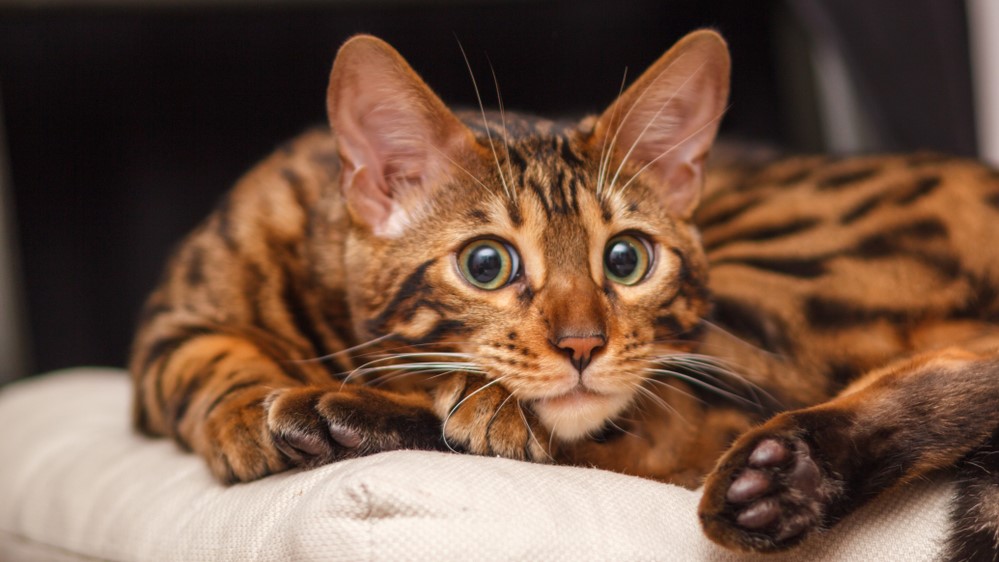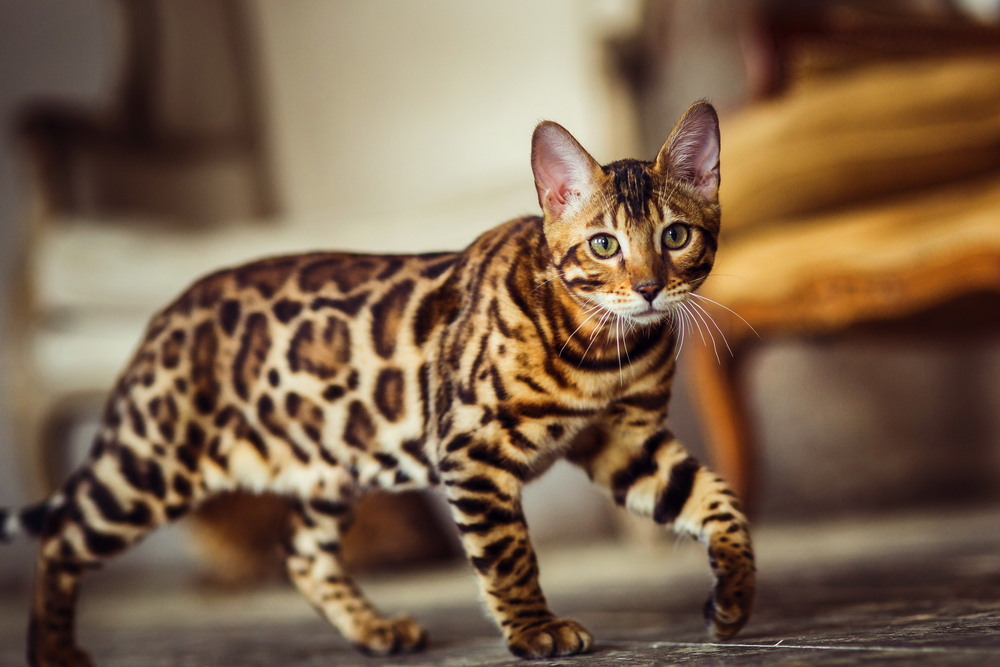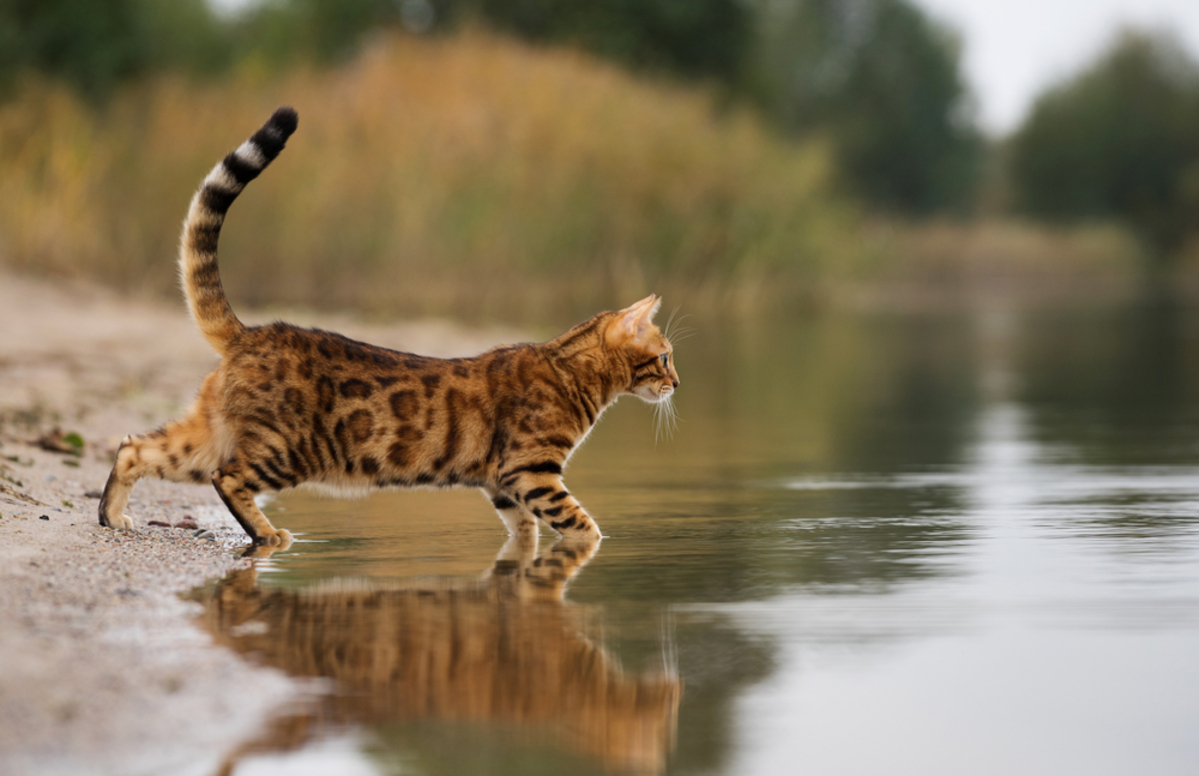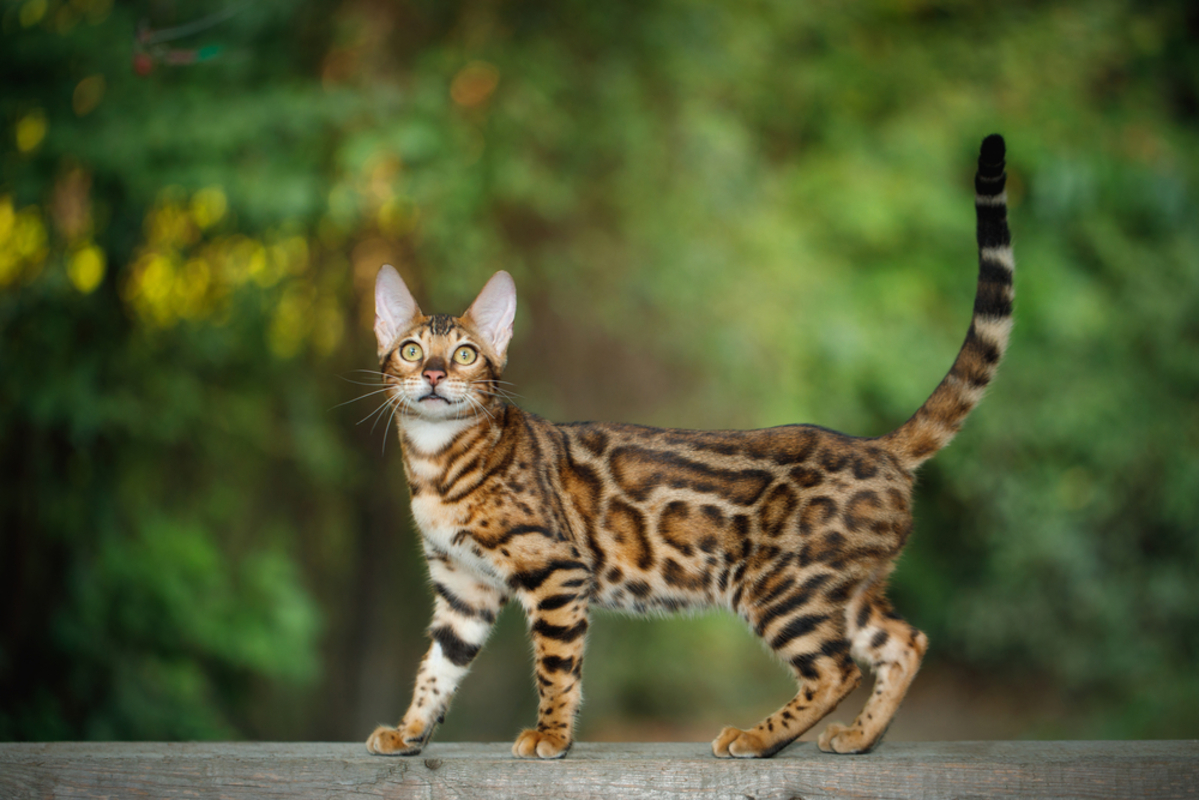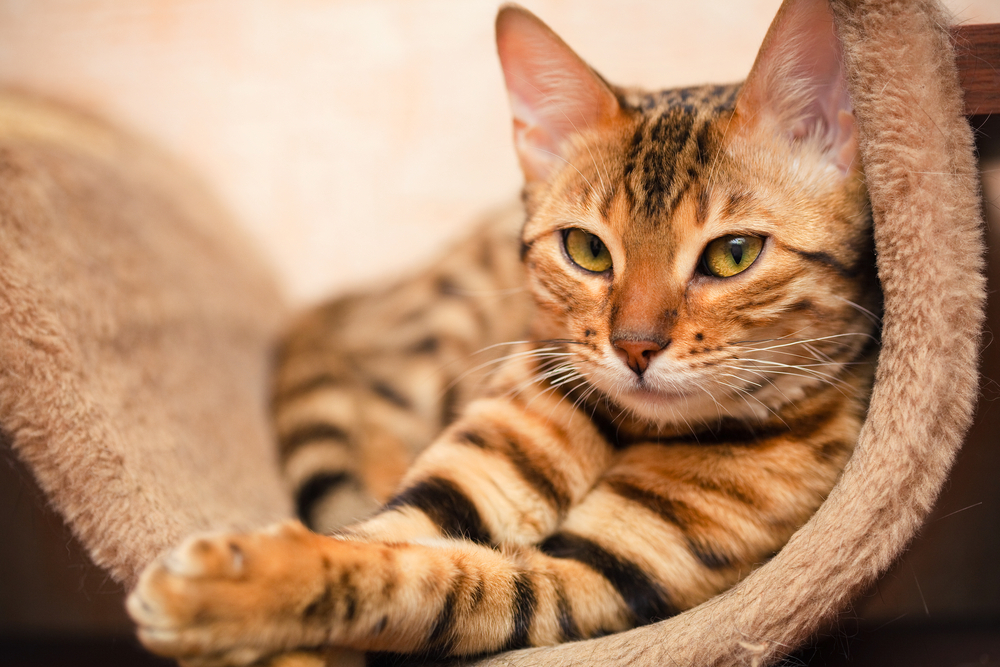📖 Table of Content:
It’s hard to believe that owning a cat could make you a criminal but, in some states, having a Bengal kitty is against the law. But, why are Bengal cats illegal? Is it because they’re so criminally adorable?
No matter how beautiful these kitties are, they’re pretty wild. Although this might be why some cat parents love this breed, it’s also the reason why some states and countries have completely banned them. Even those that don’t have strong rules about who can or cannot own this special fluff.
I know, there are many laws in the United States that you’re probably not aware of. If this is the first time you’re hearing this and you planned on getting a Bengal, I’m terribly sorry for being a bearer of bad news. It’s better to find out about it here than when you get a hefty fine simply for having your lovely purrer.
Although it might not make sense to you right now, there’s a valid reason why most of us can’t own this majestic feline. If you’re interested in learning more, let’s find out why are Bengal cats illegal exactly, and which states are affected by this law.
What is a Bengal cat?
Before we move on to answering the question of why are Bengal cats illegal, it’s crucial that we’re familiar with the breed first. Once we learn more about these special felines, we might understand the restrictions a bit better, too.
Back in the early 1960s, a domestic cat got together with an Asian leopard cat, which resulted in what’s considered to be the first Bengal kitties. These special felines are known for their spotted coats which look like that of a leopard.
These beautiful, wild-looking kitties are actually pretty smart. Don’t let their wild appearance fool you. They can be just as friendly and social as any cat out there. Although they have some wild blood in them, these majestic felines don’t grow much bigger than your regular house fluff.
They’re affectionate and very playful, and they’d turn your home into their playground. There’s never a dull moment with a Bengal! These kitties get along well with other pets and they enjoy the company of other people. Just give them enough room to play and they’ll be happy furbabies!
Most of the Bengals today are many generations away from their wild predecessors. Because of this, they require as much care as your regular kitty. What makes these felines even more special is their love for water and how easy you can train them.
They would love a small backyard pool just for them. If you don’t have one, your aquarium will do just fine… Of course, this is not an indoors-only kitty, but that’s where she’ll be the safest. Knowing all of these things now, I have to wonder – why are Bengal cats illegal, when they’re this sweet?
Why are Bengal cats illegal?
They sound like purrfect feline companions that every cat lover wishes to have by their side, so, why are Bengal cats illegal? Are these restrictions a bit too dramatic, or is there a valid reason why you can’t have one purring in your lap right now?
The main reason is simply that they’re not as domesticated as your average home cat. Besides, no matter how sweet they are, these majestic felines still carry some wild traits. Unfortunately, many countries have restrictions when it comes to the ownership of hybrid animals.
However, their wild nature isn’t the only reason why some countries completely prohibit them. Did you know that your Bengal cat could threaten the environment? Yes, your dear fluff could be seen as a biosecurity risk! Although it sounds silly, it’s always better to be safe than sorry when it comes to these things.
Unfortunately, Bengal cats can carry diseases that can infect and severely injure livestock, or even threaten local habitats. No matter how adorable these kitties are, their wild nature craves wilderness. Just like their non-domesticated parent, they also crave a wild habitat and even prefer raw meat to regular cat food.
In some states, however, exotic pet owners are the only ones who are allowed to own a Bengal cat. Even then, they’re obliged to provide them with an appropriate environment and facilities where they can be their true selves, without posing a threat to other animals and habitats around them.
States where Bengals are illegal or have strict restrictions
Some places, such as Hawaii, Seattle, and NYC, completely prohibit having a Bengal cat as your pet. All three of these states have strict legal restrictions when it comes to the ownership of wild cat hybrid species. Other states, however, are a little less strict when it comes to Bengals.
For example, the states of Texas, Alaska, Denver, Georgia, Iowa, and Massachusetts require Bengal owners to get a permit from their Parks and Wildlife departments. In most places, however, Bengals that are higher than generation F4 are completely legal to own.
So, the only time you’ll need a permit is if your kitty is F1-F4. If this is the case with you, you’ll probably need to go through special training that will make you a qualified wild animal handler.
Here are Bengal cat laws depending on the city/state you’re from:
- New York City – After a man kept a tiger in his apartment, NYC completely banned the ownership of wildcats. Because of that, you can’t keep a Bengal cat either, no matter the generation.
- Seattle – All generations of Bengals are banned.
- California – Although there are no bans, there are still some regulations that you need to follow, especially if you’re the owner of F1 and F2 generation Bengal.
- Alaska – All F1 – F3 Bengals are banned. If you plan on keeping a Bengal, you need to have a permit and register a pedigree, which will serve as proof of your cat’s generation.
- Colorado – Requires proof that your cat is separated from her wild cat predecessors for at least 5 generations.
- Connecticut – All generations of Bengals are banned.
- Delaware – You must own an exotic animal license to adopt a Bengal cat.
Bengal cat restrictions outside of the USA
If you’re wondering why are Bengal cats illegal, but you’re not from the USA, I might have some good news for you. In case you’re from Canada, I’m happy to tell you that owning a Bengal cat is legal in almost all parts of the country.
You shouldn’t have any issues enjoying your time with this majestic feline in British Columbia, New Brunswick, Nova Scotia, Manitoba, Ontario, Saskatchewan, and Quebec. If you’re from Alberta, however, you’ll have to register your purrer with the ICA and make sure she’s four generations away from her wild parent.
When it comes to Europe, the laws depend on the countries and the cities the owners are from. Still, there’s no country that completely bans the ownership of Bengal cats. Most of them require your fluff to be four generations separated from the Asian Leopard.
While some of them require registration of ownership, others don’t need anything. Your Bengal kitty is seen just like any fluff out there. Still, while the UK allows all generations of Bengals, the Brussels region in Belgium requires your cat to be F5 and above.
Because of that, it’s important that you inform yourself well about the laws in your country and city. Fines for illegal wild cat ownership can be quite large, and I’m sure you’d like to avoid them.
Here’s what to do if you’d like to own a Bengal
Do you know what’s worse than paying a fine for owning your purrer? Having to surrender her to the authorities. If you’d like to avoid this heartbreaking scene, make sure you do enough research before you decide to adopt the beautiful Bengal.
So, where do you begin? Well, you can try contacting the Fish and Wildlife Department, since they handle the exotic animal regulations. If they don’t have enough answers for you, they’ll direct you to someone who does.
This is the best way to inform yourself about this issue. You can ask the breeder, of course, but most of them aren’t familiar with the laws of every state in the country. These laws can change and, sometimes, the breeders fail to keep up-to-date with the most recent adaptations.
No matter how eager you are to get a Bengal, take it easy. Go step by step to ensure you’re allowed to take one home. Even if your state permits owning a Bengal cat, still make sure you find out about your country’s regulations, as they sometimes differ.
Get your country’s code of ordinances and check if there are any banned animals. If you see a Bengal cat on the list, it might be a sign that you should look for a different purrer to take home. However, if there’s no Bengal on the list, there’s still one more thing you should do.
Talk to your local municipal clerk. Some municipalities ban the ownership of certain animals, no matter the laws of the country or your state. This is your last step and, if you get the green light here, you’ll be free to prepare your home for a new feline roommate!
